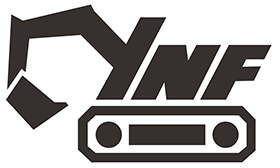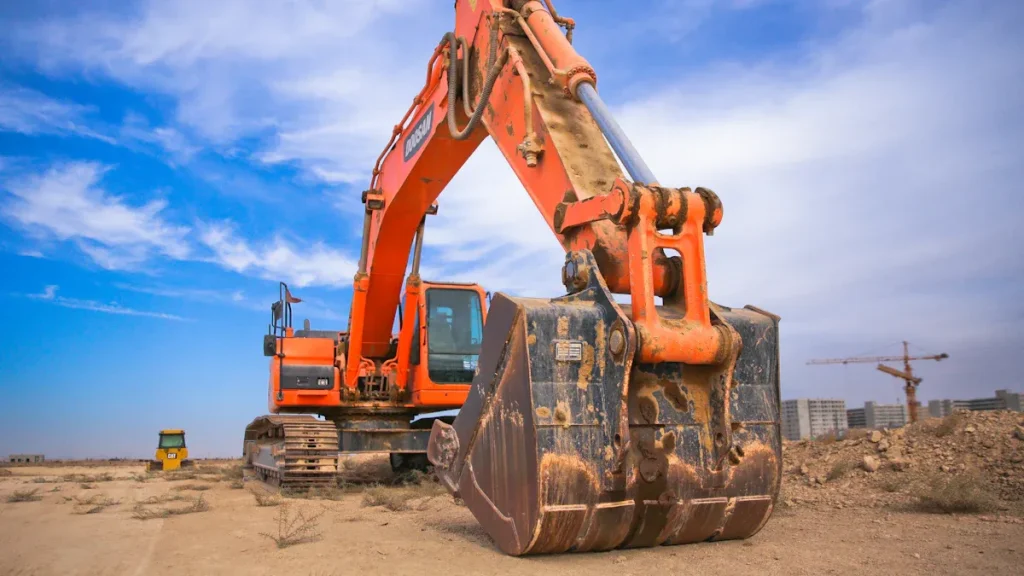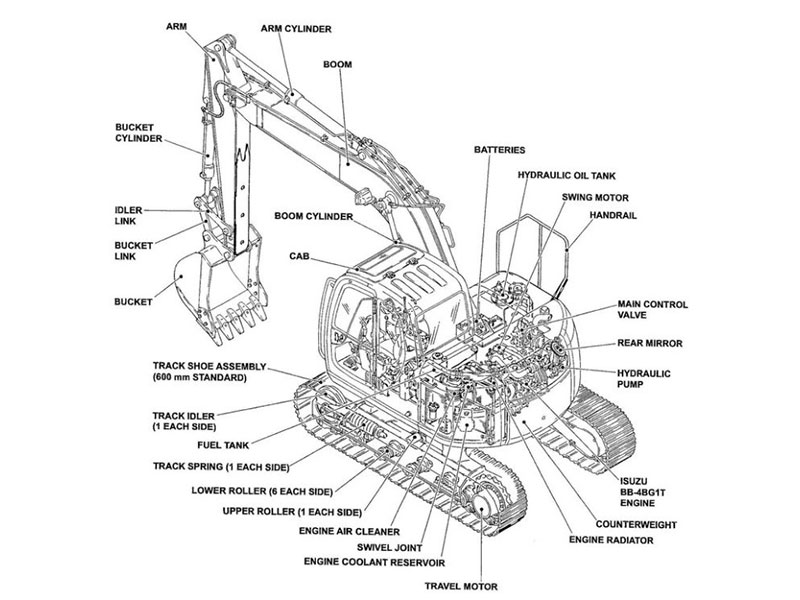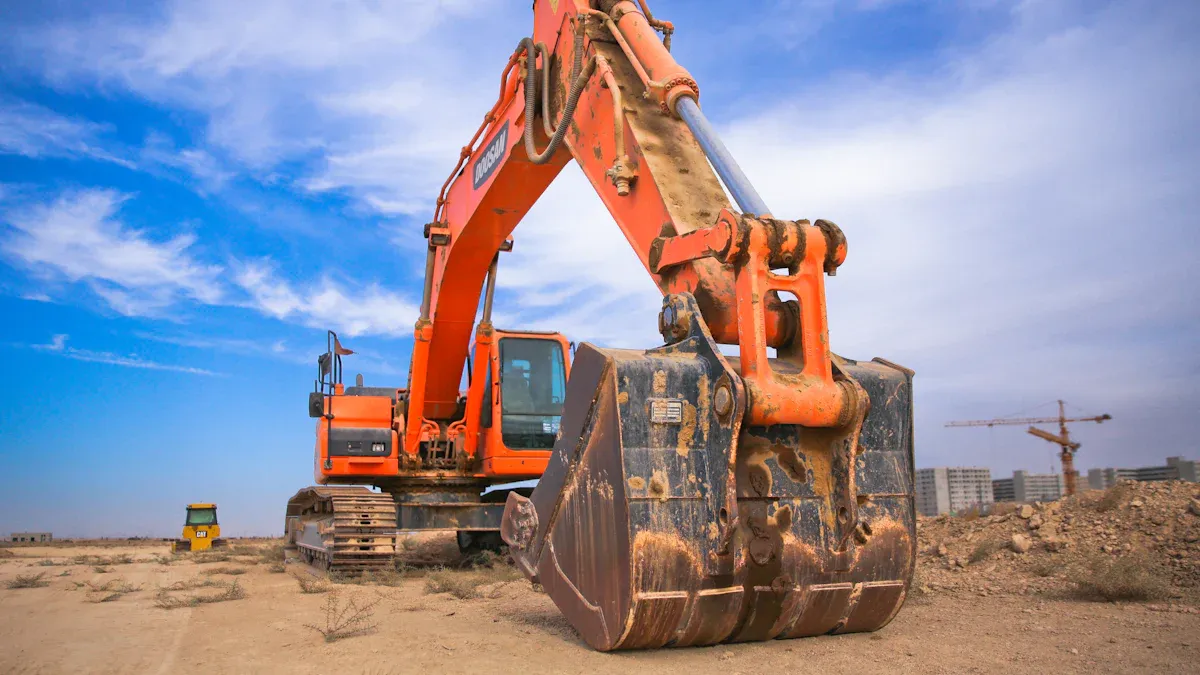
You use many important excavator parts every day. These include the engine control unit, sensors, wiring harnesses, electric motors, alternator, batteries, relays, fuses, and display panels. Knowing these excavator electrical components helps you stay safe. It also helps you work well. Grounding keeps you safe from electrical shocks. It sends stray currents to the ground. This is very important when you use popular attachments. It is also important in high-voltage areas. Safety training and good protective systems lower accident risk. If you know each part, you can find problems early. You can then get help from an excavator electrical parts supplier.
Key Takeaways
Learn about the main electrical parts in your excavator, such as the ECU, sensors, and batteries. Knowing these parts helps you use your machine safely and well.
Check and take care of your excavator’s electrical system often. Doing this can stop sudden problems and make your machine last longer.
Clean and look at sensors and wiring harnesses a lot. Keeping these parts clean helps them work right and keeps your machine running well.
Use a checklist when you do safety checks. Checking relays, fuses, and battery terminals often helps you find issues early and saves money on repairs.
Pick a good supplier for excavator parts. A trusted supplier like YNF Machinery gives you quality parts and help when you need to fix your machine.
Essential Electric Parts
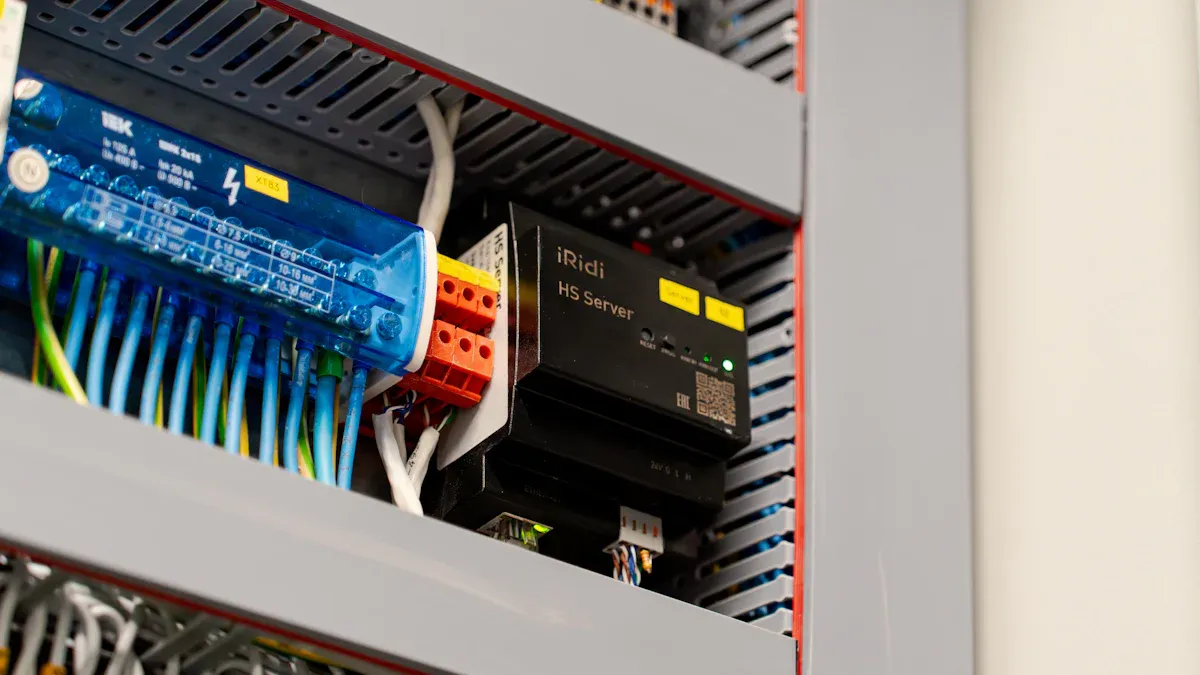
Engine Control Unit (ECU)
You use the electronic control unit when you start your excavator. The ECU reads data from sensors to manage engine functions. It controls fuel injection and ignition timing. This helps the engine work well and smoothly. The ECU changes settings when you use attachments. If the ECU breaks, your excavator might lose power or stop. Check the ECU if your engine acts strange.
Sensors
Sensors help you watch and control your excavator. They track temperature, pressure, and weight. Pitch and roll sensors show how the machine moves. Boom sensors measure the boom’s angle. Stick sensors with laser catchers give elevation references. Bucket sensors track opening and closing. Tilt sensors measure bucket tilting. Masts with compass and GNSS antennas show heading and position. Load cells measure bucket force to stop overloading. Torque transducers check swing motor performance. Sensors help you use attachments safely and keep your excavator working.
Tip: Check sensors often for dirt or damage. Clean them to keep readings correct.
Wiring Harnesses
Wiring harnesses link all electrical parts in your excavator. They send power and signals between the engine, sensors, ECU, and display panels. Good wiring harnesses keep your excavator working well. If wiring harnesses break, you can lose power or control. Common problems are corrosion, vibration, heat, and rodents.
Cause | Description |
|---|---|
Corrosion | Galvanic, crevice, and fretting corrosion can hurt wiring harnesses. |
Vibration and Physical Damage | Abrasion, chafing, and broken wires from rough use or handling. |
Heat and Thermal Degradation | Strong engine heat breaks insulation and causes fatigue. |
Rodent Activity | Rodents chew wires and cause big electrical problems. |
Check wiring harnesses often, especially after using heavy attachments or working in tough places.
Electric Motors
Electric motors power hydraulic systems in electric excavators. You use electric motors to move the boom, arm, and bucket. Electric motors get power from batteries or the grid. Only the motors you need turn on, which saves energy and battery life. Electric motors let you work without storing fuel. Hybrid excavators use diesel engines and electric motors for hard jobs. This saves fuel and lowers emissions.
Advancement Type | Description | Benefits |
|---|---|---|
Electric Excavators | Use lithium-ion batteries, so less diesel is needed. | Lower carbon footprint; quieter for cities. |
Hybrid Excavators | Diesel engines and electric motors work together. | Better fuel use; fewer emissions. |
Energy-Efficient Systems | Hybrid models save up to 30% fuel; electric models have zero emissions. | Good for indoor or city work. |
Electric motors give strong performance and better control with attachments.
Alternator
The alternator makes electrical power for your excavator. It charges the battery when the engine runs. The alternator turns mechanical energy into electricity. If the alternator breaks, the battery can lose charge. This can stop the starter motor and keep your excavator from starting. The alternator helps all electrical systems and keeps your machine working.
The alternator powers the electrical system.
It charges the battery when the engine runs.
A bad alternator can drain the battery and cause starting problems.
It keeps the starter motor and other parts working.
Good alternator performance means fewer breakdowns.
Batteries
Batteries store energy and help start the engine. You need batteries to power electric motors, sensors, and display panels. Lead-acid batteries are common in construction equipment. AGM batteries have strong starting power and resist vibration. Gel batteries work well in tough conditions. If you forget battery care, corrosion can ruin batteries. Dead batteries stop your excavator and cause downtime. Regular checks and cleaning help batteries last longer.
Battery Type | Pros | Cons | Common Use Cases |
|---|---|---|---|
Lead-Acid | Cheap, reliable, and powerful | Heavy, needs care | Big excavators with combustion engines |
AGM | No maintenance, strong starting power | Costs more, not good for deep cycling | Skid steers, small excavators |
Gel | Handles deep discharges, no maintenance | Lower cranking amps, costs more | Tough conditions, reliable performance |
Note: Always check battery terminals and keep them clean to stop starting problems.
Relays and Fuses
Relays and fuses protect your excavator’s electrical system. Relays control electricity flow and handle high currents. Fuses stop too much current and short circuits from hurting wiring harnesses and other parts. Fuses break electricity when faults happen. Check relays and fuses often to stop electrical problems.
Relays control high-current jobs.
Fuses protect circuits from overloads.
Fuses and relays keep wiring harnesses safe.
Checking them often stops breakdowns.
Relay and fuse problems can come from loose battery clamps, bad connections, burned fuses, broken starter motors, and wrong fuel viscosity. Issues with relays and fuses can stop your engine or attachments.
Display Panels
Display panels help you control your excavator and watch its functions. New panels show real-time data about engine status, boom position, arm movement, and attachments. Some panels give 360-degree views, 2D and 3D grade control, and payload systems. These features help you work safer and better.
Technology | Benefit |
|---|---|
360-degree monitor | Helps you see better for safer work |
2D grade control | Shows depth and slope right away |
CAT’s payload system | Tracks material loading for better work |
Grade control tech | Makes operation more automatic and exact |
X-53x Automatic system | Controls excavation depth and boom angle by itself |
New display panels use touchscreens for easy control. You get visual and audio feedback, which helps you avoid mistakes with attachments. 2D and 3D grading systems help you work more accurately on different ground.
How Parts Work Together
Power and Control
Many electrical parts help your excavator work. The electric system and hydraulic system move the boom, arm, and bucket. When you start the excavator, electric power goes to the motor inverter. The motor inverter uses battery power to change how fast the hydraulic pump works. This helps you lift heavy things and dig carefully. The PLUS+1 control system makes sure power flows right. It keeps the electric and hydraulic systems working together. The HMI lets you control the excavator safely.
Component | Function |
|---|---|
Electric Powertrain | Works with other systems to replace the engine and keep things safe. |
HMI | Makes sure safety and rules are followed during setup. |
Motor Inverter | Uses battery energy to run the electric motor and change pump speed. |
PLUS+1 Control System | Shares power and messages between electric and other systems. |
These parts work together as one team. This teamwork gives you smooth and strong performance. It helps you finish hard jobs.
Communication
The electric system sends signals between sensors, the ECU, and display panels. These signals help you check pressure, temperature, and movement. When you use attachments, the system gives you updates right away. Wiring harnesses send signals and power to every part. You see important information on the display panel. This helps you change the hydraulic system fast. Good communication helps you find problems early. It keeps your excavator working well.
Tip: Always look for damage on wiring harnesses. Clean connectors help signals travel clearly.
Safety Systems
Safety systems keep you and your excavator safe. The electric system uses relays, fuses, and sensors to stop accidents. You should check inspection records often. Managers look at these records to keep safety rules strong. You need to check wires for cuts or bare spots. Regular checks stop electrical problems that can hurt the hydraulic system. Use a checklist to make sure safety devices work. This means alarms, emergency stops, and overload sensors. If you do these steps, you lower the chance of breakdowns and accidents.
Look at inspection records often.
Check all wires for damage.
Use a checklist every time you inspect.
Test alarms and emergency stops.
Make sure overload sensors work.
You keep your excavator safe and working when you do these things. When systems work together, every electric and hydraulic part helps keep you safe.
Maintenance and Troubleshooting
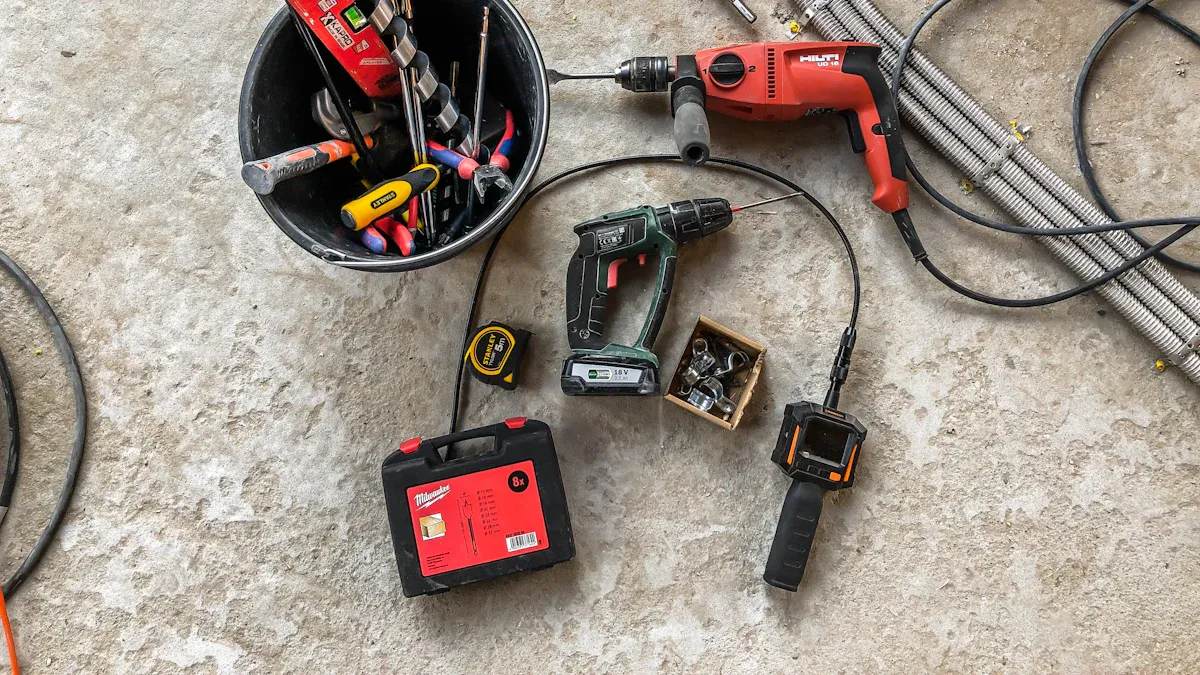
Common Issues
Excavators can have many electrical problems. These problems often come from bad wiring or old circuits. Sometimes, sensors stop working. You might see warning lights or lose control power. If you do not fix these signs, your excavator could stop. The table below lists common electrical problems and their causes:
Electrical Issue | Description |
|---|---|
Circuit failures | Bad contact, short, or open circuit. Check switches and relays. |
Motor failures | Strange running or hard to start. Check the power and motor windings. |
Sensor failures | Happens a lot in new excavators. Check wiring and connections often. |
Check wiring and sensors often. Finding problems early saves money and time.
Maintenance Tips
You can keep your excavator working by doing simple checks. Clean battery terminals and look for damaged wires. Test sensors and relays to see if they work. Change old fuses and check display panels for errors. Use a checklist to remember your inspections. Watch for rust or rodent bites on wires. Cleaning and checking often helps you find problems early.
Tip: Clean connectors and wires often. Dirt and water can cause electrical problems.
Troubleshooting Steps
You can fix many electrical problems with easy steps. First, look for loose wires or burned fuses. If controls do not work, check the display panel for warnings. Test the battery voltage and look for rust. If the engine will not start, check the alternator and relays. For sensor problems, check the wires and connections. Knowing these steps helps you keep your excavator working well.
Look for damaged or loose wires.
Check fuses and relays for burning.
Test battery voltage and clean the ends.
Look for error codes on display panels.
Check sensors and their wires.
If you cannot fix it, ask an excavator electrical parts supplier for help.
Excavator Electrical Parts Supplier
You need a good supplier when you fix or change parts. YNF Machinery sells strong parts for your excavator. Pick a supplier that follows industry rules and sells tough parts. Choose one with many products and good service. A good name and fair prices are important too. YNF Machinery has these things and helps you keep your excavator safe. When you need new sensors, wires, or motors, trust YNF Machinery as your supplier.
You should know the main electrical parts in your excavator. This helps you stay safe and do a good job. Checking your excavator often lets you find problems early. This can help you avoid big repairs. Training teaches you how to use your excavator better. It also helps your machine last longer. Doing regular maintenance gives you many good things:
Benefit | Description |
|---|---|
Improved equipment reliability | Regular checks make your machine work better and more often. |
Reduction of unexpected breakdowns | Fixing small issues early stops big breakdowns from happening. |
Decrease in expensive parts replacement | Taking care of your machine means you buy fewer costly parts. |
Extended equipment life | Good care helps your excavator last for many years. |
Improved resale value | Machines that are well cared for sell for more money. |
Better parts inventory management | Keeping up with maintenance helps you track your parts better. |
Doing regular checks can cut repair costs by 25%.
You can save a lot of money by finding problems early.
Taking care of your excavator helps you spend less.
Learn about your excavator’s electrical system. If you need new parts, YNF Machinery has good service and strong products.
FAQ
What should you do if your excavator will not start?
Start by checking if the battery has enough power. Look at the fuses and relays for any damage. Check the wiring for loose or broken spots. If it still will not start, ask YNF Machinery for new parts.
How often should you check excavator electrical parts?
Check important electrical parts every week. Watch for dirt, damage, or worn spots. Clean connectors and test sensors often. Doing this helps you find problems early and keeps your excavator working well.
Why do sensors fail on excavators?
Sensors can stop working from dirt, water, or shaking. Wires might break or connectors can get loose. You can stop many sensor problems by cleaning and checking them often.
Can you replace wiring harnesses yourself?
You can change simple wiring harnesses if you use the manual and follow safety rules. For hard repairs, ask a trained technician or get help from YNF Machinery so you do not make mistakes.
Where can you buy reliable excavator electrical parts?
You can get strong and reliable excavator electrical parts from YNF Machinery. They have many products and good customer service. Always pick trusted suppliers for safety and good performance.
